Home / Strategic Intervention Axes /
The key program for the digital transformation of SMEs launched in 2022 (SMEs), in the framework with 'Greece 2.0' with European funding and with a budget of €445 million. The program includes three actions: the "Digital Tools for SMEs" for the acquisition of digital tools, the "Development of digital tools for SMEs" and the "Development of the digital economy". Digital Product and Service Development' for subsidizing digital investments, and "Digital Transactions" for upgrading cash registers and POS. At the same time, the Greek ecosystem of start-ups is growing dynamically, with significant investments, acquisitions by international giants and five start-ups, strengthening Greece's position in innovation and entrepreneurship.
There is an overwhelming number of SMEs with relatively moderate innovation activities
Greece is characterized by a limited market size and scalability issues that reflect on the innovation capital of small businesses
Greece lags behind the EU average in terms of private Research and Development (R&D) and innovation investments, which affects SMEs and relates to emerging technologies (e.g., AI) as well
Limited sharing of data and data openness in private enterprises (e.g. lack of data hubs)
Goal 1
Businesses use one or more of the following: (i) cloud computing services, (ii) data analytics, (iii) AI
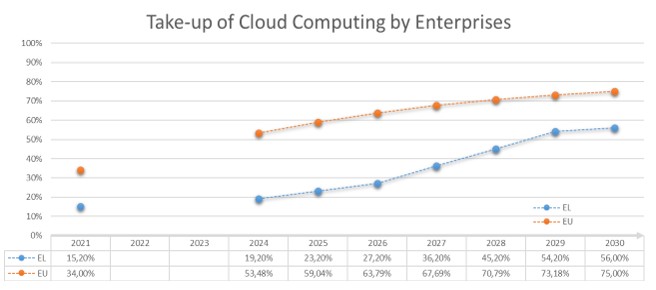
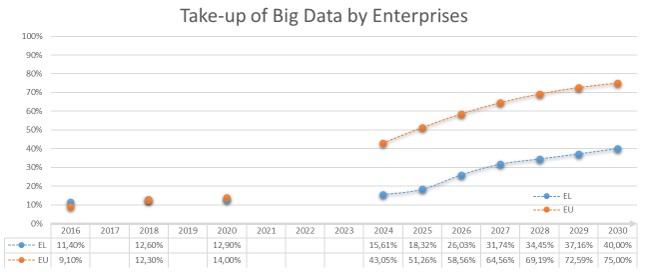
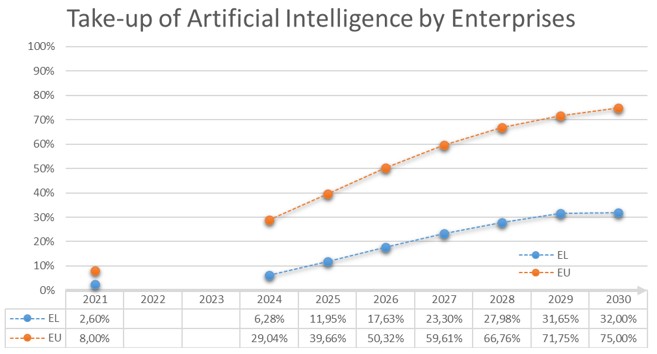
56% of enterprises using at least one of the applicable cloud computing services
40% of enterprises performing data analytics (internally or externally)
32% of enterprises using at least one of applicable artificial intelligence technologies
Goal 2
80% of Union SMEs reach at least a basic level of digital intensity
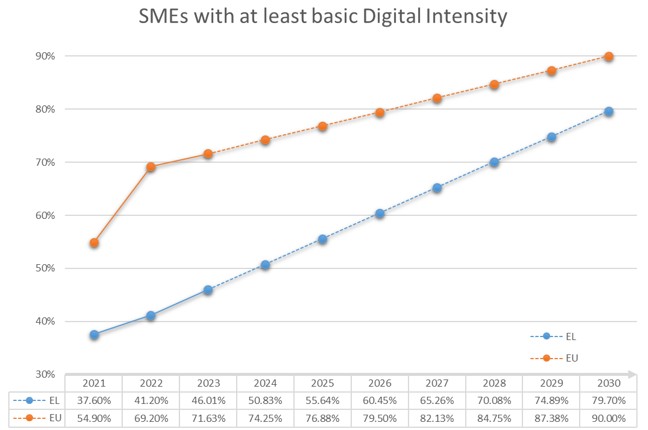
80% of SMEs using at least 4 of 12 selected digital technologies
Goal 3
Facilitate the growth of innovative start-ups, improve their access to financing, aiming to increase the number of unicorn companies
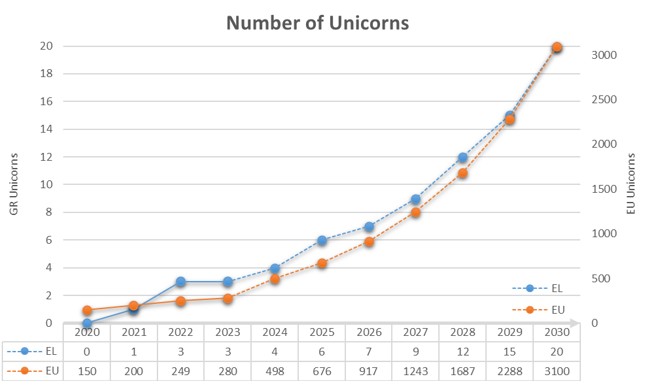
Creation of 12 Unicorns